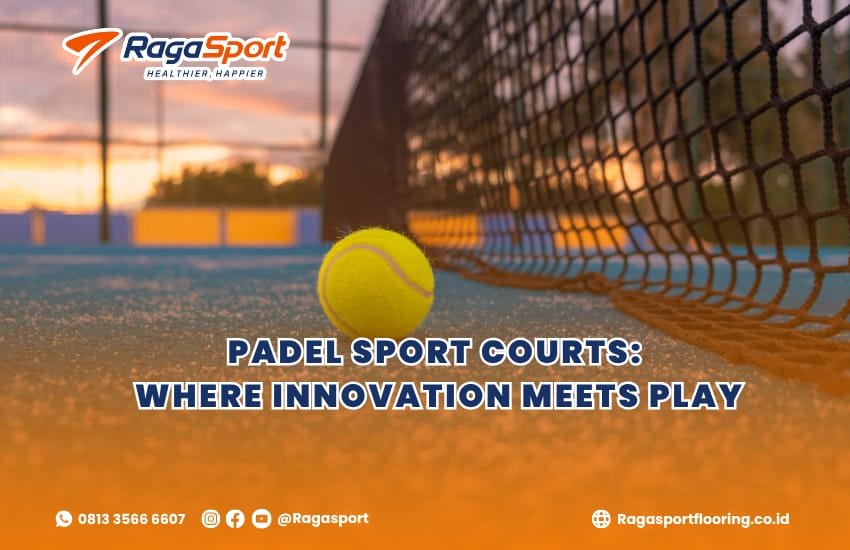Padel isn’t just a sport it’s a cultural movement redefining how people connect, compete, and stay active. With a growth curve that mirrors early tennis booms, padel has rapidly carved a space across Europe, the Americas, and now Asia especially Indonesia.
But behind the fast rallies and wall rebounds lies a complex engineering feat: the padel court itself. Building a professional-grade padel sport court means blending structural integrity with player-focused design. Whether for a high-end sports facility or a private residential court, quality begins at the foundation.
This guide uncovers everything you need to know before taking the leap into padel court construction.
Table of Contents
What Defines a Professional Padel Sport Court?
Padel courts are purpose-built arenas designed to accommodate the game’s unique style where shots can rebound off walls, and the pace demands precision. The court isn’t just a flat rectangle. It’s a three-dimensional arena, meticulously measured and enclosed for dynamic play.
Official Court Specifications:
- Length: 20 meters
- Width: 10 meters
- Net Height: 88 cm at center
- Wall Height: Up to 4 meters (glass and mesh combined)
Unlike tennis, the walls are integral to gameplay. Glass walls allow for strategic rebounding, while metal mesh sections provide breathability and safety.
Anatomy of a High-Quality Padel Court
To truly understand padel construction, imagine building a performance machine. Every component from the turf to the lighting affects how the game is played.
1. Base & Foundation
It begins beneath the surface. A stable concrete slab with integrated drainage ensures no waterlogging and minimal wear.
2. Surface Layer
Most professional courts use monofilament synthetic turf often blue or green with silica sand infill for consistency in bounce and player grip.
Other surface options include:
- Porous acrylic resin: Durable and non-slip
- Textured concrete (rare, for budget builds)
3. Wall Structure
- Tempered Glass: 10–12 mm thick, shatter-resistant. Provides full transparency and rebounds.
- Steel Mesh: Galvanized, powder-coated, and modular for easy repair and long life.
4. Lighting System
Four to eight high-efficiency LED floodlights, mounted on 6m+ poles, provide uniform illumination for night play without glare.
Types of Padel Courts: What’s Right for Your Space?

A. Outdoor Courts
- Ideal for resorts, sports parks, or private villas.
- Must use UV-resistant turf and weatherproof metal.
B. Indoor Courts
- Perfect for urban sports centers and malls.
- Allows climate control and longer facility use hours.
Hybrid models also exist, with semi-covered roofs and open side ventilation a rising trend in Southeast Asia.
How a Padel Court Is Built: Step by Step
Here’s how RagaSport approaches professional construction:
1. Site Feasibility
- Land contouring, zoning checks, and utility mapping
- North–south orientation for optimal sunlight control
2. Civil Works
- Earthwork, compacting, drainage setup, concrete casting
- Precision leveling using laser guides
3. Frame & Structure Installation
- Glass wall anchoring with custom brackets
- Welded mesh panels installed with anti-corrosion coatings
4. Turf Laying & Infill
- Turf rolled, stretched, and glued
- Silica sand distributed mechanically for uniform density
5. Final Touches
- LED poles and electrical systems
- Game line painting, net installation, access gates
Cost Consideration: Investing in Longevity
Building a padel sport court is a significant investment but one that can yield both financial and community returns.
Key Cost Drivers:
- Type of court (indoor/outdoor)
- Material quality
- Location logistics (e.g., difficult terrain)
- Optional features (smart lighting, branding, fencing style)
Estimated Range in Indonesia:
IDR 600 million – 1.2 billion per court (turnkey)
Maintenance: The Unsung Hero of Court Longevity

Even the best-built court needs ongoing care. RagaSport provides maintenance packages, but here are daily best practices:
- Sweep and clean turf weekly
- Check infill levels monthly
- Inspect lighting quarterly
- Tighten mesh bolts and clean glass panels
A maintained court plays better, lasts longer, and keeps your brand or facility looking sharp.
Who Should Build Your Court? Why RagaSport Is the Leader
As an experienced sport infrastructure specialist, RagaSport understands both the engineering and the emotion of padel. Our team combines European-standard technical know-how with tropical climate adaptation ensuring your court performs beautifully for years to come.
What sets RagaSport apart:
- Turnkey Solutions: From design to delivery
- Certified Materials: FIP-compliant glass, turf, and structures
- Customization Options: Court branding, lighting levels, and multi-court complexes
- Post-Build Support: Warranty, repairs, and expansions
Indonesia’s Padel Boom: Why Now Is the Time to Build
From Jakarta to Bali, padel courts are springing up in clubs, luxury housing complexes, and hotels. With limited land requirements and high group engagement, padel is being dubbed the fastest-growing lifestyle sport in Indonesia.
For entrepreneurs, it’s a new revenue stream. For developers, it’s an amenity magnet. For institutions, it’s a way to energize space and people.
Ready to Build? Let’s Talk

Whether you’re planning a single court or a full-scale padel complex, getting it right starts with the right partner. RagaSport has helped transform visions into world-class padel experiences across the country.
👉 Explore our services: ragasport.com/padel-court-construction-services/
📲 Chat with our specialist on WhatsApp: wa.me/6281335666607
Let’s design your court, your way with precision, performance, and purpose.

